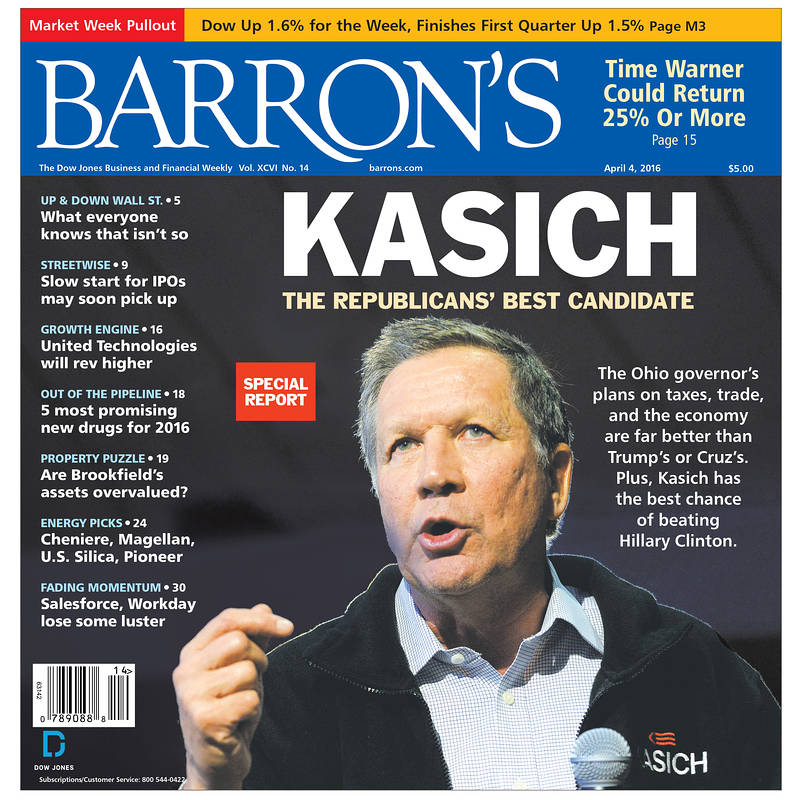 The latest issue of Barron’s devotes its cover story to Ohio governor and long-shot Republican presidential candidate John Kasich. John Kimelman makes the case for Kasich as “The Best Pick for Markets and the Economy.”
The latest issue of Barron’s devotes its cover story to Ohio governor and long-shot Republican presidential candidate John Kasich. John Kimelman makes the case for Kasich as “The Best Pick for Markets and the Economy.”
For much of this presidential race, the popular Ohio governor with the common touch and a blue-chip political pedigree has been running at the back of the pack, although to his credit he has outlasted well-funded early favorites such as Florida’s Marco Rubio and Jeb Bush, and Wisconsin Gov. Scott Walker.
Now, some leaders in the Republican Party are pressing him to drop out of the race, in an effort to boost rival Ted Cruz and block Donald Trump from earning enough delegates to win the nomination on the first ballot. But having stood down more than a dozen challengers, it is unlikely that Kasich, 63, will stop now.
For investors, that looks like a good thing. Kasich’s policy prescriptions, experience, and temperament make him the GOP’s best bet to reassure a nervous marketplace.
Kasich wins high marks against Hillary Clinton, as well. We argued, in a cover story last month, that Clinton was the better choice for investors in a head-to-head matchup with Republican front-runner Donald Trump because she is a known quantity with moderate instincts (“Trump or Clinton: Who’s Better for Investors?” March 5).
But Kasich (rhymes with basic) outshines them both. And in the event of a contested convention, he has a powerful advantage: He’s the only GOP candidate who beats Clinton in a head-to-head contest in the polls. “With John Kasich, you have a candidate who lines up almost perfectly with many investors,” says Chris Krueger, a Washington strategist with Guggenheim Securities. “He has a track record as a pragmatist from his time as governor, and he knows the markets from his stint as an investment banker at Lehman Brothers.”
Unlike Clinton, Kasich has a sensible across-the-board tax-cutting agenda for corporations, individuals, and investors. And as a Republican president working with a presumably GOP-controlled Congress, he would be a more effective leader. After all, he spent six years as the chairman of the House Budget Committee, so he knows how to broker a deal.


